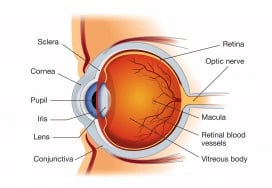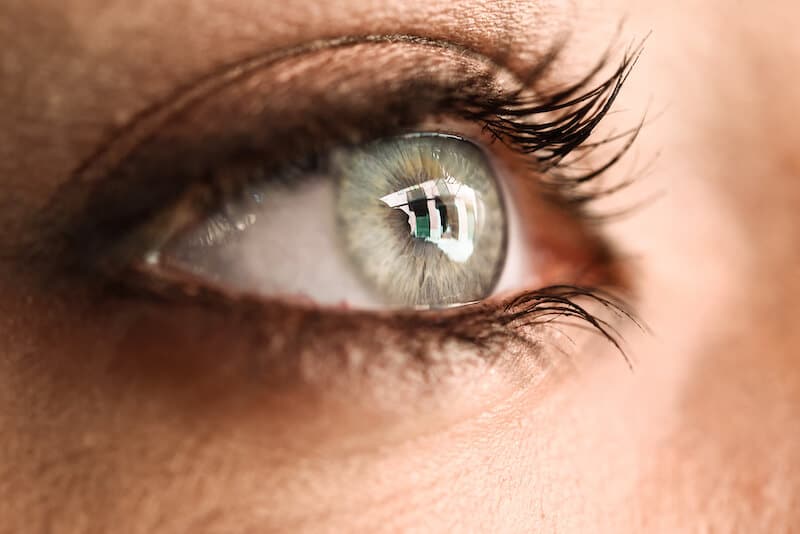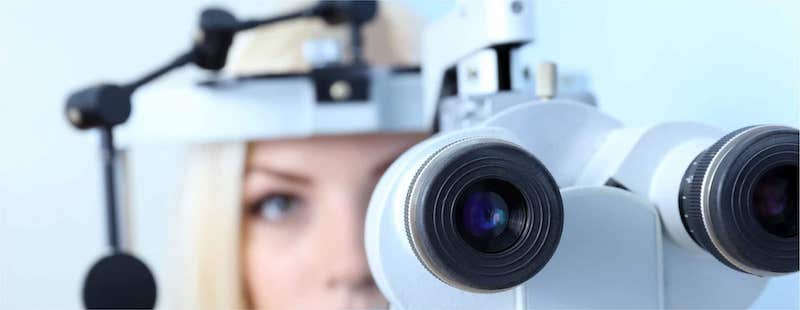You will have a comprehensive set of scans and tests at Focus Clinic before you meet your specialist. These eye tests give a wealth of data on your eye health and vision, and help ensure you are a safe candidate to undergo laser eye surgery.
The tests performed before the laser eye treatment will include:
- examinations of your corneal shape
- the optics of your eyes
- corneal composition
- intraocular pressure
- lubrication of the eyes
- refraction.
We have gone into detail on each of these tests to explain why there are so important!
What Are The Eye Tests Needed For Laser Eye Surgery?
1. Corneal Shape

One of the tests you will receive will study the shape of your cornea. The cornea is your eye’s clear, protective outermost layer, which forms a dome shaped surface covering the front of the eye.
Both the outside and inside surfaces of the cornea will be examined – this will be the clear window at the front of the eye, and the detailed map of the overall thickness across the whole cornea. Ware looking for diseases or abnormalities of the cornea, basically weaknesses of the structure, like a house survey. Are the walls thick enough, are the walls straight?. If I knock a door through I want to know the house will stay standing.
2. The Optics Of Your Eyes
Imagine your eye is a camera. Is it a Canon camera, capable of great quality pictures, or more of a low-end Kodak? This isn’t about your glasses or prescription, rather the scan looks at the quality of the image your eye can produce after it is fully corrected with your glasses. We are measuring what is known as aberrations. Basically, assuming the camera is properly focused, how good will the picture be?
3. Corneal Composition

We use a scanner similar to a CAT scan, to map the internal layers of the cornea. This helps us determine corneal strength pre-operation, and also shows us exactly where the treatment should be performed within the cornea.
4. Intraocular pressure
We want to exclude glaucoma, which is a disease usually characterised by raised pressure in the eye that can damage the optic nerve and vision. According to the NHS, Glaucoma usually occurs when the fluid in the eye cannot drain properly, putting pressure on the optic nerve as a result. It is important you are tested for glaucoma before undergoing laser eye surgery as symptoms can often go undetected in its early staged.
5. Lubrication of the eyes

We scan for the quality and quantity of your tears, to see if you might be at increased risk of dryness in the eyes after surgery. Tears are crucial to the cornea as they keep the eye moist, prevent infection and help heal wounds.
6. Refraction
The degree of your prescription, e.g how bad is your short-sight, long-sight, astigmatism. We measure this at least 6 times during these scans for each eye, even before our optometrists and surgeons have begun their own measurements. Before you have laser treatment, we will have confirmed your glasses prescription at least 15 times!
After having these eye tests, we will be able to determine if you are a suitable candidate to undertake laser eye treatment.
Want To Find Out If You're Suitable?
If you're wondering whether laser eye treatment is the right choice for you, there are some key things to consider...

